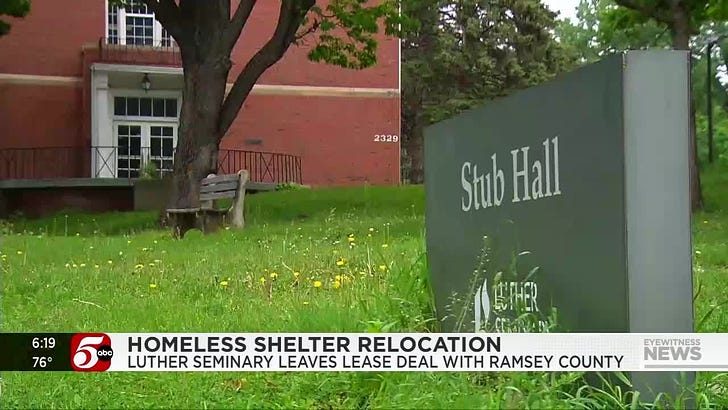
Discover more from Lutheran Confessions
Is Forgiveness Possible? ~or~ Is It Struggle All The Way Down?
A Guidebook To Progressive Church #25
Are there some wrongs that can never be righted? Which is to say, is forgiveness possible?
Many of us recognize that past harms have repercussions over generations, especially when very little has been done to truly redress them. Think of European settlement and genocide in the Americas. Many institutions are now making “land acknowledgments” as a way of raising awareness and expressing complicity. Some churches and denominations are repudiating the Doctrine of Discovery. But those making such statements are also aware these are small steps, tentative and inadequate, if the goal is true seeking of forgiveness and practicing reparations.
Much the same could be said for the contemporary conversation about slavery and the call for African-American reparations. Before much repair has even been offered, we are already tempted to ask ourselves: how much is enough?
Part of the reason the struggle for social justice is a perpetual struggle has to do, it seems, with the reality that those causing the harm only very rarely fully confess what they’ve done, and then also resist repairing the damage. This is why, for example, mega-corporations are often willing to accept multi-million dollar fines after long and costly court battles—they know the fines will still be dwarfed by the profits.
In other words, the perpetual struggle is still profitable for those in power, and as a result they see little reason to “do the work” because the costs outweigh the benefits. The work is easy and the conscience is untroubled because the pockets are lined and lives comfortable.
The struggle is also perpetual for those seeking justice because their pain is so great, the grief and tragedy unremitting, the memory of the lost or harmed resonant, and because the cause is just. This is righteous action, re-establishing right relationships between neighbors and creation. Who can give up on that?
—
However, let’s pause here briefly and note that what I am discussing so far is repair/struggle, forgiveness all within the immanent frame—the this-worldly, human frame. Thus far the question is whether or not things can ever be made right between humans and the rest of creation, and if so, how much would need to be done to accomplish it?
We should add that in Christian perspective, there is an additional frame, one as I have mentioned in previous posts plays less a part of the imagination of progressive Christians than some other groups. That is to say, in addition to whether forgiveness can be accomplished between humans or groups, whether reparations can ever be fully realized, we might also ask ourselves whether or not forgiveness and repair can ever truly happen before God.
I raise this issue not as a manner of escape (although I guess that might be a temptation undergirding the move) but rather as a resource both for hope and expanded repair. That is to say, I think if we are stuck in cycles of injustice, it may behoove us to ask ourselves whether or not forgiveness accomplished “in Christ” and “before God” may themselves radically shift how we think about forgiveness in the immanent frame itself.
In Lutheran theology we say, based on the immensely influential Small Catechism, that confession is “for the sake of the absolution.” Everything hinges for Luther on the forgiveness side of the equation. Even in another article in the catechism, on the Eucharist, Luther can say that those who are worthy to receive the sacrament are those who simply trust that it is “for them for the forgiveness of sins.”
As regards confession, Luther wants to ensure that the sinner does not overly agonize over attempting to enumerate all their sins (something that was sometimes demanded in the Roman Catholic confessional culture of the time), but rather simply to list the sins that burdened them, and then trust the words of absolution “as if from God themself.” The word of absolution is a freeing word, one with power, precisely because it frees.
—
Okay, let’s return to forgiveness and reparations in the immanent frame. First, we must acknowledge that it is not the role of the one who has caused the harm to define the terms of forgiveness. That is up to the one (or community) wronged. So in what follows I am not giving out any assignments. I’m only thinking through how to process my own responsibilities to forgive and repair.
On a practical level, I guess we can say that forgiveness happens if the one wronged expresses forgiveness, or accepts the offered repair. This becomes more difficult to define when the wrongs have been committed against those who are already dead, or against creation itself, or are systemic in nature. In all of those situations the question, How much is enough? remains.
In relationship to this question, we are weak, inadequate to the task. We cannot repair it all, find all the people from whom we could seek forgiveness, or in the case of creation extract a verbal expression of forgiveness. We share instead with God in Christ as part of creation a kind of weakness in this regard.
I appreciate what my friend Greg Walter says about this. In his Being Promised, he writes, “weak power gives possibility directed toward the neighbor. It is open to public criticism and evaluation. Promise occupies no place and gives the place to the neighbor, requiring a radical kind of hospitality (13).
In an interview he conducted around the time his book came out, he had this to say:
All eschatology is local.
Since God’s promise is always other-directed, since the place of promise is always the place of the other, any statements we make about eschatology or fulfillment are always bound to the neighbor.
In other words, I think that a kind of cosmic or total eschatology is a bit over-hasty. We might be able to articulate that from God’s promise but I think what we have biblically-speaking is the apocalyptic seer’s poetry, parabolic statements in the Gospels, and various wisdom sayings throughout Paul. When taken from the perspective of promise, we have just a schema, a bare-bones skeleton that has flesh only when it is addressed to the neighbor’s needs, concerns, and injuries.
Eschatological claims need to be filled out in relationship to the way that God’s promise in Jesus addresses those local concerns. Thus, it is not just enough to be a theologian of the cross, you need to be a local theologian of the cross. And that isn’t enough either because the theology of the cross needs this promise in order to get the openness and spirit-breathed impossibility interwoven into the local scene.
This may be an overly simplistic interpretation, but in a sense what he is saying is: Do what you can, then trust (or hope?). And stay local.
The future that happens after we seek forgiveness or offer reparations is not up to us, or controlled by us. It is not a specific place we are heading, as if there is already a place and God’s Spirit is inviting us there. Rather, “the Spirit is the future itself, a welcome that allows one to expect the unexpected” (54).
I guess you could say that forgiveness and repair in the immanent frame are super-saturated, filled with the possibility of the “more” of God’s forgiveness while all under the aegis of the weak power of what can be done.
Which is to say: Go ahead and start. You’re right, your church is never going to be able to create a fund for every kind of reparations that is needed. Your worry that what you do or what is demanded will never be enough should be no barrier to beginning, or continuing. If you have a conversation about reparations for African-American churches, inevitably someone will ask if you should also fund reparations for Native Americans. And probably we should. But what-aboutism is a logical fallacy, not a constructive theology of holistic forgiveness.
The steps on the way to forgiveness and repair on not a zero sum game, or narrow path where each fork in the road is a direction lost once one is chosen. Rather, the steps on the way are creative, and much like a garden, may bear the most fruit if actually applied in specific soil right in the back yard.
And some of the practices that may lead to forgiveness, some of the practices that are repair, may first have to take the form of promises. This is why ultimately documents like the repudiation of the doctrine of discovery are not received as purely empty words, but words with potential. They are a kind of promise.
Walter again: “A true promise is weak. It is an adventure. Making a promise is risky but so is trusting one. This means a kind of waiting on what may come, that which comes-to, advent. This life is a risk, an opening, and a willingness to see what happens.
The bravery to accept this risk is a kind of courage to embrace the fragility of one’s self and each other. Mary Oliver has a line: “I tell you this to break your heart, by which I mean only that it break open and never close again to the rest of the world.” I think that is the risk of promise, which is to dwell in this life of Spirit that the Crucified One pledges.”
—
Is forgiveness possible? If we are going to answer responsibly, we can answer weakly: maybe.
Is it struggle all the way down? I hope not.
Is extending a promise that may be broken, that illustrates our fragility, that really ventures something, worth it?
I mean, that’s who Jesus was, right? He is that kind of promise from God.
That’s the theological turn in terms of “making right” that I believe can provide resources for those of us seeking to make things right in the immanent frame.
In other words, I do not honestly know whether or not the steps I take, the promises I make, to work to repair the harm that has occurred through the various systems in which I am complicit will ever be enough. But getting to that level, to gaining such purview, is not my responsibility, even if some kinds of progressivism aim that high.
Progressive church begins where it can, and meets the gift of God, Jesus, in its willingness to risk and see what happens.
Subscribe to Lutheran Confessions
Reflections from a progressive Lutheran pastor in the South.





Hi, do you have family in Chicago? I played music with Tim Schnekloth. Maybe I'm mixing up the spellings, but I haven't run into many people with that last name.